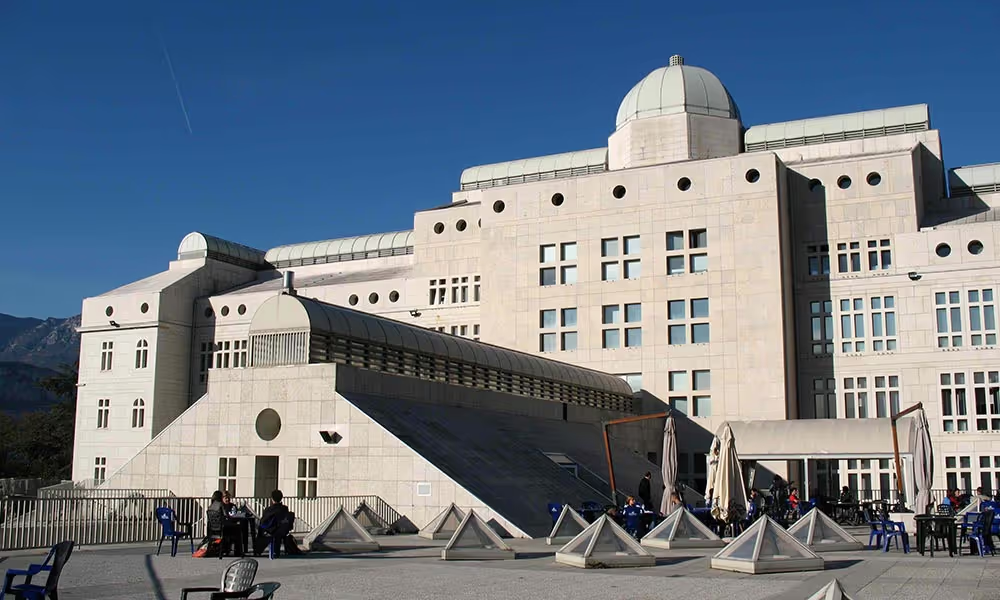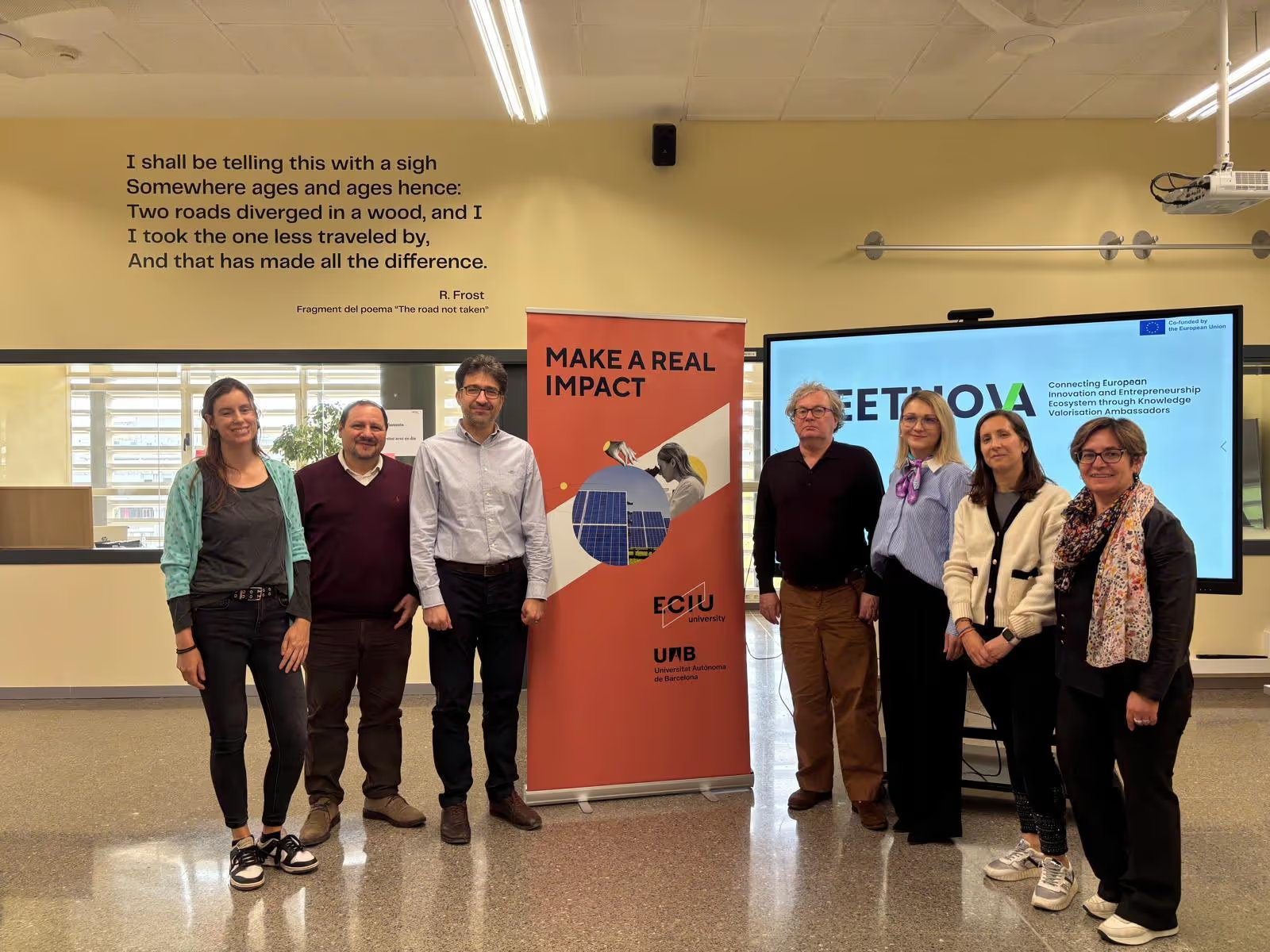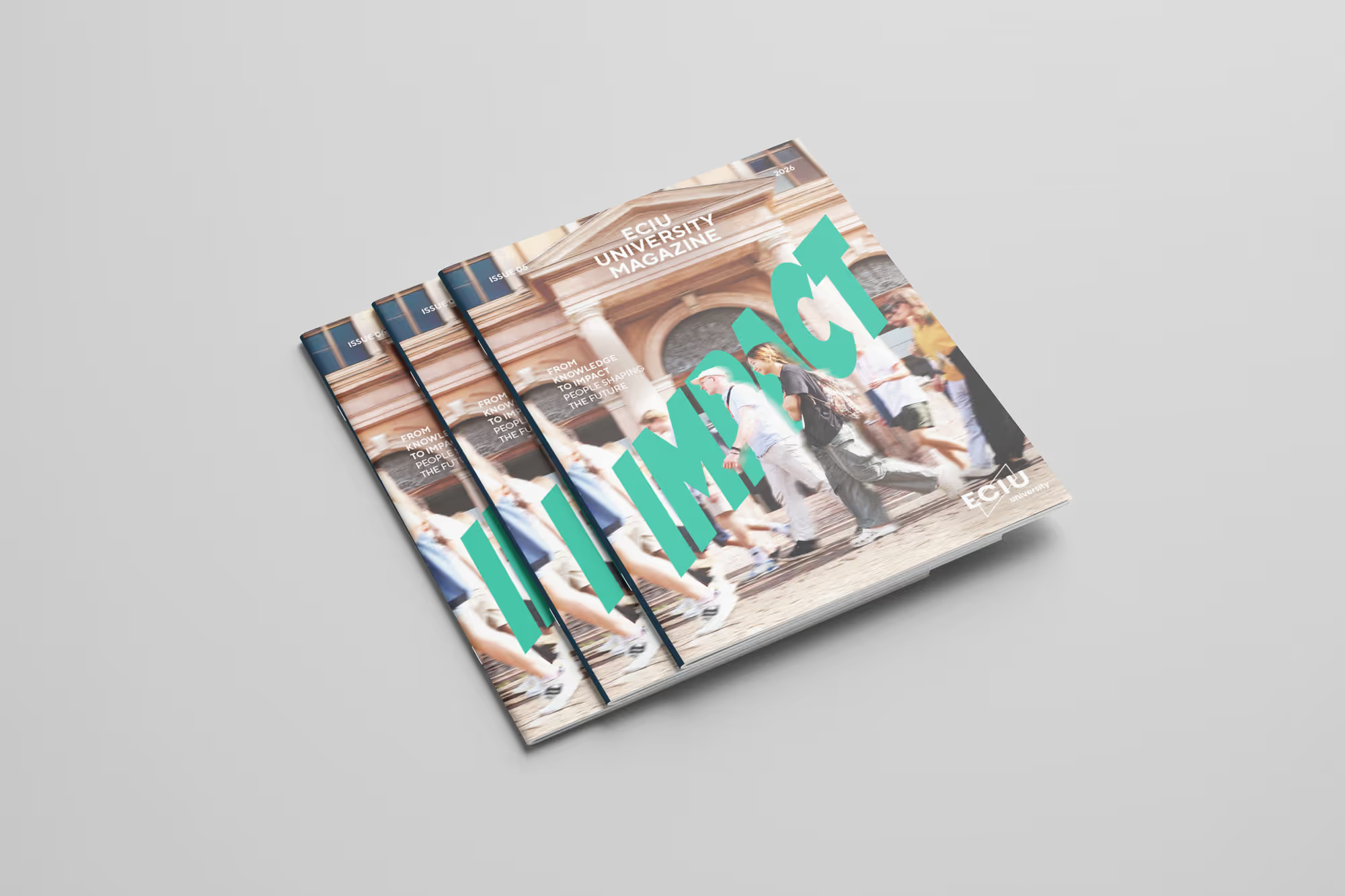Challenge-Based Learning – Finding solutions to real problems as a learning strategy. A workshop organized by ECIU

"I believe that challenge-based learning will play a key role in my life. When resources like time and money are limited, it is crucial to invest them in the best possible way. I think I have learned to focus on a problem and ask the right questions".
(Words of a student who participated in a Challenge Based Learning experience).
Challenge-Based Learning (CBL) is a pedagogical approach that actively engages students to identify, analyze and design the solution to a problem in a real-life situation (Tecnologico de Monterrey, 2015).
The University of Trento and other universities discussed the different applications of challenge-based learning as an innovative learning methodology as partners of ECIU University, the European Consortium of Innovative Universities, during the workshop "Basic principles of Challenge-Based Learning (CBL)". The meeting took place on 11 March and is part of the activities organized within the ECIU project, which aims, among other things, to implement and disseminate a new way of doing research, education and innovation, on a European scale and in connection with the business sector.
In a world that is constantly evolving and rapidly changing, also thanks to technologies, universities are changing their education approach to juggle and solve increasingly complex problems, considering different points of view. To quote American anthropologist Margaret Mead, universities are increasingly dedicated to teaching students 'how to think' and not 'what to think'.
In this sense, Challenge-Based Learning can be a useful learning modality because of its three main phases: engage, that is the commitment that students take on in facing a challenge, in defining the problem to be solved and in asking the right questions; investigate, where they find relevant information and analyze it; and act, which is where they design, implement and assess the solution.
Many students who have participated in these courses are enthusiastic and motivated as they apply their knowledge and skills to real problems; they learn to collaborate with their peers from different areas of study in interdisciplinary teams, they learn more about their subject of study by doing, and learn new skills (the so-called cross-sector or 21st Century skills), such as empathy, teamwork, stress and time management, problem solving, intercultural skills, communication skills. Finally, they have the opportunity to experience the world of work before finishing their studies.
Teachers who have used this teaching method confirm that they have worked with much more motivated students, who feel responsible for finding a solution to a concrete problem. Teachers become part of the learning process as coaches or guides and in turn learn and find inspiration from the students, and have the opportunity to establish new relationships with companies and institutions out of the university.
Challenge Based Learning should not be confused with Project Oriented Learning or Problem Based Learning. Unlike these, which are based on the analysis of case studies or on the resolution of a theoretical problem, CBL focuses on solving a current problem presented by a "challenge provider", a company or an institution motivated to find a solution to a real issue.
The choice to apply CBL implies overturning the design of the training plan: from plans based on the transfer and evaluation of knowledge to plans based on the resolution of challenges and the assessment of the skills that have been used. CBL involves three evaluation moments: initial, when you to measure the skill level before the beginning of the experience; continuous, when you monitor the progress of students during the learning experience, in order to apply any adjustments; final, when you assess the results achieved at the end of the course.
The University of Trento has a long tradition in offering innovation challenges to its students, for example through the 'CLab Innovation Challenge' of the CLab Trento, whose activities are increasingly integrated with those of the School of Innovation. The latter will soon include the Innovation of Education Lab, an initiative that is part of ECIU University aimed at providing resources to university professors and researchers to promote the development and implementation of CBL in collaboration with FormID - Competence Centre for teacher training and educational innovation. Their goal is to create a network of educators, teaching staff and other stakeholders who have a common interest in enhancing the educational offer on CBL and promoting pedagogical/educational research on CBL.
Challenge-Based Learning has already been tested in several courses. In "Innovation and Entrepreneurship Studies" and in the double degree programme EIT Digital Master School, groups of 4/5 students from different ECIU Universities work to solve a business challenge submitted by a company. In these cases, the experience is divided into two parts and includes a first phase of content transfer in flipped mode in each university and a second phase of business challenge in groups of students from the various participating universities.
Another example of application of CBL in the scientific sector is the one proposed to the Department of Information Engineering and Computer Science of UniTrento, where the students are directed to CBL early in programming competitions, in the hackathons organized for the ICT Days, and then continue with real CBL activities in collaboration with companies and other stakeholders. These opportunities are made possible by mentorship programmes and cooperation among students.
The method, however, can also be applied in the area of social sciences and the humanities. In the seminar “Sostenibilità e pratiche del consumo alimentare” organized by the Department of Sociology and Social Research of UniTrento, working groups study and analyze the dimensions of sustainability in relation to food consumption.
And in the "Venezia Città Plurale" workshop at Ca' Foscari University of Venice, 60 students have redesigned the historical identity of this multicultural city in an innovative way, planning a future development based on the city's past and present cultural diversity.
by Alessandra Scroccaro, researcher at the Department of Economics and Management of the University of Trento

ECIU is the leading international consortium of research intensive universities, with collective emphasis on innovation, creativity and societal impact, driving the development of a knowledge-based economy.



